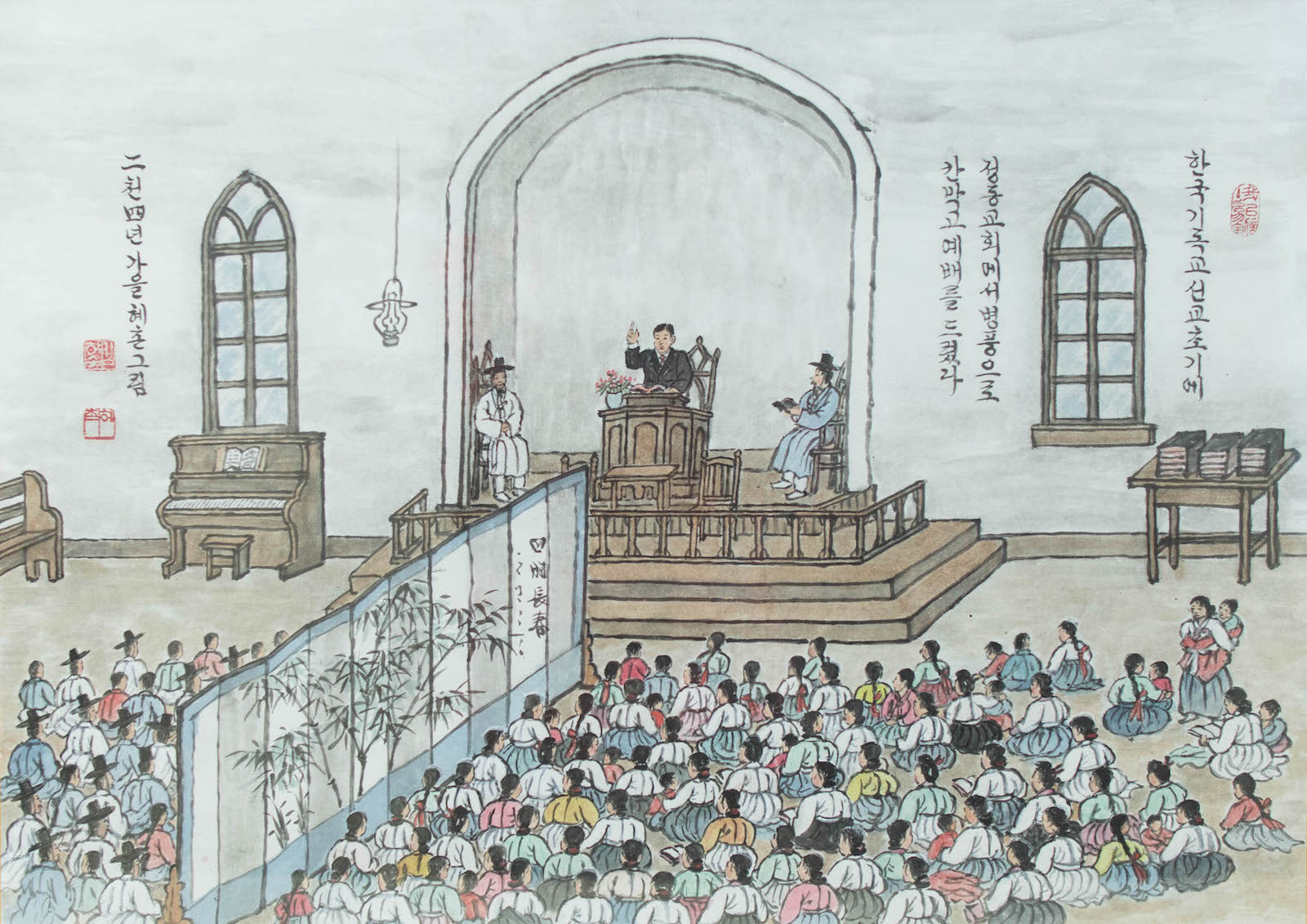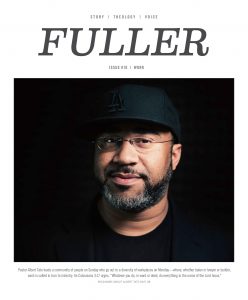
I love work. More specifically and honestly, I love the work I love. Who doesn’t? Much of that work involves people and ideas, creativity and imagination, problem solving and decision making. What’s not to love about these things? I see it as a privilege to get to engage daily in such work. Even on very challenging days, I experience a great deal of my work as a gift.
Some of the work I love I actually get paid to do: it’s called my job. The job I have is one I love. But if the work is my job, I do what is needed whether or not I enjoy certain elements of it. Some would say that this is what makes a job a job! Earlier in my life, I had plenty of jobs that included a large amount of work I didn’t love or even like. Part of what spurred me on through college and beyond was to get to a point where a larger and larger portion of my job fell close to the sweet spot that I believed fit me. Having a job that “fits” in this way is often the fruit of privilege, but it is also the outcome of work in its own right—in my case, the work of study and learning.
Of course, plenty of the work I do every day lies outside my employment. There are the “wash-rinse-repeat” tasks of life: cleaning, shopping, cooking, painting, raking, sweeping. There is also the work I do as a volunteer for various organizations to support the ministry of others, or as a citizen of my community or of our nation. I find that tenacity and diligence are needed just as much, if not sometimes more so, in this work for which I am not paid. However we look at it, life is full of work.
For too many in the world, work is foremost an act of survival: not doing what they love particularly, but doing what they can and must for themselves and their families. When a woman spends three hours or more every day walking to and from the nearest well, it is only part of a life of work. When a man in a deforested area scavenges for firewood, it is not about gifts, abilities, or desires, but about survival. Regardless of our situation, work is essential to our lives for a multitude of reasons. Our physical and emotional lives depend on practices of work: using our bodies, minds, words, and actions to accomplish something. Our stewardship of life calls for exercising “dominion”—using our God-given capacities to work as an expression of being made in the image of God and being entrusted with care for each other and for the world around us. A workless life would be a diminished life.
God intended us to work before the curse made work a burden. As Christians who take God’s purposes seriously and want to reflect on and enact them in the world, work is a prime concern. It dominates our waking hours; it deploys much of the strength of our body and mind. It can put some of our best talents and capacities into life-making, culture-shaping practices for ourselves and for others.
The public and private, individual and social, economic and political dimensions of our work all play against the backdrop of our call as faithful disciples. For “whatever you do in word and deed, do it all in the name of the Lord Jesus Christ, giving thanks to God the Father through him” (Col 3:17). What does this require of us? That is the question we explore in this issue of FULLER magazine.

Amo el trabajo. Más específica y honestamente, amo el trabajo que amo. ¿Quién no? Gran parte de ese trabajo involucra personas e ideas, creatividad e imaginación, resolución de problemas y toma de decisiones. ¿Quién no ama estas cosas? Veo como un privilegio el involucrarme diariamente en tal trabajo. Incluso en días muy desafiantes, experimento gran parte de mi trabajo como un regalo.
Parte del trabajo que me encanta hacer, es algo por lo que me pagan: es mi empleo. El empleo que tengo es uno que amo. Pero si el trabajo es también mi empleo, debo hacer lo que sea necesario, ya sea que disfrute de ciertos elementos o no. ¡Algunos dirán que esto es lo que hace que un trabajo sea un trabajo! Anteriormente en mi vida, tuve muchos trabajos que incluían una gran cantidad de trabajo que no amaba o incluso no me gustaba. Parte de lo que me alentó durante la universidad y más allá, fue llegar a un punto en el que una cada vez mayor parte de mi trabajo se acercaba al punto ideal de lo que yo creía era adecuado para mí. Tener un trabajo que “se te ajuste” es a menudo fruto de privilegios, pero también es el resultado del trabajo en sí mismo, en mi caso, el trabajo del estudio y el aprendizaje.
Por supuesto, mucho del trabajo que hago todos los días se encuentra fuera de mi lugar de empleo. Existen las tareas “lavar-enjuagar-repetir” de la vida: limpiar, comprar, cocinar, pintar, rastrillar, barrer. También está el trabajo que hago como voluntario para varias organizaciones a fin de apoyar el ministerio de otros, o como ciudadano de mi comunidad o de nuestra nación. Encuentro que la tenacidad y la diligencia son necesarias tanto o más en este trabajo por el cual no me pagan. De cualquier manera que lo veamos, la vida está llena de trabajo.
Para muchos en el mundo, el trabajo es más que nada un acto de supervivencia: no hacen lo que aman particularmente, sino que hacen lo que pueden y deben hacer para ellos y sus familias. Cuando una mujer pasa tres horas o más todos los días caminando hacia y desde el pozo más cercano, es solo parte de una vida de trabajo. Cuando un hombre en una zona deforestada busca leña, no se trata de talentos, habilidades o deseos, sino de supervivencia.
Independientemente de nuestra situación, el trabajo es esencial para nuestras vidas por una multitud de razones. Nuestras vidas físicas y emocionales dependen de prácticas de trabajo: el uso de nuestros cuerpos, mentes, palabras y acciones para lograr algo. Nuestra mayordomía de la vida requiere ejercitar el “dominio”: usar nuestras capacidades dadas por Dios para trabajar como una expresión de ser hechos y hechas a la imagen de Dios y de confiarnos el uno al otro y al mundo que nos rodea. Una vida sin trabajo sería una vida disminuida.
Dios quería que trabajáramos antes de que la maldición hiciera que el trabajo fuera una carga. Como cristianos y cristianas que toman en serio los propósitos de Dios y quieren reflexionar sobre ellos y ponerlos en práctica en el mundo, el trabajo es una preocupación primordial.
El trabajo domina nuestras horas del día; despliega gran parte de la fuerza de nuestro cuerpo y mente. Puede poner algunos de nuestros mejores talentos y capacidades en la generación de prácticas de vida y cultura para nosotros y para los demás.
Las dimensiones públicas y privadas, individual y social, económica y política de nuestro trabajo juegan contra el telón de fondo de nuestro llamado como discípulos y discípulas fieles. Porque “todo lo que hagan o digan, háganlo como representantes del Señor Jesús y den gracias a Dios Padre por medio de él.” (Col 3:17) ¿Qué requiere esto de nosotros? Esa es la pregunta que exploramos en este número de la revista FULLER .

저는 일을 사랑합니다. 더 정확하고 솔직하게 말하자면, 저는 제가 사랑하는 일을 사랑합니다. 누군들 안 그럴까요? 제가 사랑하는 일은 대부분 사람과 아이디어들, 창조력과 상상력, 문제 해결과 의사 결정을 포함합니다.이중에사랑하지않을만한것이어디 있겠습니까? 매일 이런 일을 한다는 것은 특권입니다. 그래서비록힘들때도있지만,그럴때조차제일의 상당한 부분은 선물처럼 느껴집니다.
제가사랑하는일중에어떤일은심지어보수를받으며 합니다. 사람들은 이 일을 저의 직업이라 부르죠. 제 직업은 제가 사랑하는 일입니다. 물론 어떤 일이 직업이 되면, 거기에는 제가 달가워하지 않더라도 해야 하는 일이 뒤 따라 옵니다. 몇몇 분들은 “그러니까 직업은 결국 직업일 뿐이지!” 하고 말씀 하실지 모릅니다. 젊은 시절에는 제가 사랑하지 않거나 심지어 좋아하지도 않는 일이 잔뜩 들어간 직업을 갖는 경우가 많았습니다. 학창 시절내내,그리고졸업후에도제게힘이되었던것중 하나는적성에맞는일의비율이점점더높은직업에 다가가고 있다는 기대였습니다. 이렇게 자신에게 “꼭
맞는” 직업을 갖는 것이 특권의 결과인 경우도 많지만, 다른 한편으로는 일 자체의 결과이기도 합니다. 저의 경우에는 공부와 배움이라는 일이 현재의 직업으로 이끌어주었습니다.
물론제가매일같이반복하는일의상당부분은업무 외의 일입니다. 청소, 쇼핑, 요리, 페인트칠, 낙엽 쓸기, 비질 등은 살면서 늘상 되풀이해야 하는 일입니다. 또 여러목회자지원단체를위해서,혹은지역사회나 국가의 일원으로서 자원하는 봉사 활동도 있습니다. 보수를 받는 것은 아니지만 이런 일에 들어가는 끈기나 노력의 양은 절대로 적지 않습니다. 어떤 시각에서 바라보든, 삶은 일로 가득 차 있습니다. 세상에는 자신이 특별히 사랑하는 일을 하는 것이 아니라,자신과가족을위해할수있는일이나해야만 하는일을하며생존을위해일하는사람이너무나 많습니다. 가까운 우물에서 물을 긷기 위해 매일 3시간씩 걸어야하는여인에게물긷는일은일로가득한삶의 일부에 불과합니다. 황무지로 전락한 숲에서 땔감을 찾아헤매는사내에게이일은재능,소질,열망과 상관없는 그저 생존을 위한 행위일 뿐입니다.
우리의 상황이 어떠하든, 여러 이유에서 일은 우리의 삶에 필수적인 요소입니다. 삶의 육체적, 정서적 측면은 “일”(work), 즉 무언가를 성취하기 위해 우리의 육체, 정신, 언어, 행동을 사용하는 것에 좌우됩니다. 하나님이 우리를 생명의 청지기로 부르시면서 요구하신 것은 “ 다스림”(exercising dominion)입니다. 즉, 우리가 하나님의 형상으로 지음 받았으며 우리 서로와 주변 세계를 보살펴야 할 책임을 위임 받았다는 사실의 발현으로서, 하나님이 우리에게 주신 일하는 능력을 사용하는 것입니다. 일하지 않는 삶은 무가치한 삶입니다.
저주가 일을 짐으로 바꿔놓기 이전 부터 이미 하나님은 우리가 일하기를 원하셨습니다. 하나님의 뜻과 계획을 진지하게 받아들이고, 숙고하고, 세상 가운데 구현하는 그리스도인들에게 일은 최우선적인 관심사입니다. 일은 우리가 깨어 있는 시간을 지배하고, 우리 체력과 정신력의 상당 부분을 사용합니다. 일은 우리가 가진 최고의 재능과 능력을, 자신과 타인을 위해 생명을 꽃피우고 문화를 형성하는 실천 행위로 바꾸어 줍니다.
일이 가지고 있는 공적이며 사적인 측면, 개인적이며 사회적인 측면, 경제적이며 정치적인 측면 등은 모두 신실한 제자가 되라는 우리의 소명을 배경으로 합니다. “무엇을 하든지 말에나 일에나 다 주 예수의 이름으로 하고 그를 힘입어 하나님 아버지께 감사”해야 하기 때문입니다 (골3:17). 이것이 우리에게 요청하는 바는 무엇일까요? 이번 호 FULLER에서 우리는 이 질문의 답을 찾아 나섭니다.


